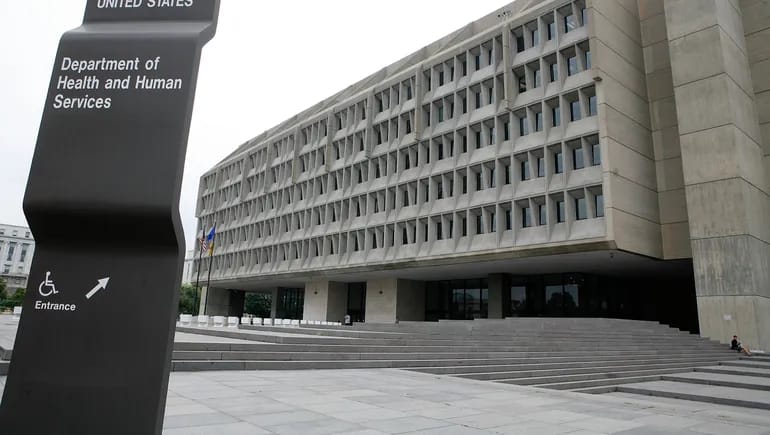This audio is auto-generated. Please let us know if you have feedback.
The Biden administration struck a triumphant tone on Thursday in rolling out the first drug price cuts negotiated by Medicare, a new authority granted by the Inflation Reduction Act. But the industry and investment community’s response to the long-awaited announcement was mixed, signaling a level of uncertainty as to the law’s true impact on drugmakers going forward.
The industry lobbying group PhRMA warned of the potentially dire consequences Medicare’s new powers may levy on drug research and access. In a statement, the group claimed the threat of lower prices may cause private funding to dry up, research incentives to shift and Medicare premiums to climb.
“The ironically named Inflation Reduction Act is a bad deal being forced on American patients: higher costs, more frustrating insurance denials and fewer treatments and cures for our loved ones,” PhRMA said in its statement.
Investors had a more muted response to the announcement. Two stock indexes associated with the sector’s health rose slightly. Multiple Wall Street analysts expressed “relief” and described the financial hit on drugmakers as “manageable.” Many of the 10 drugs involved — a mix of blood thinners, diabetes treatments and a cancer pill — were already heavily rebated, making their newly discounted prices not much lower than the “net” prices Medicare currently pays, they said.
Additionally, some of the soon-to-be-discounted medicines are no longer increasing in sales and will soon reach the end of their market exclusivity, meaning they’ll face generic competition shortly after the new prices take effect in 2026.
“The likely already substantial [price] discounts given to Medicare could help somewhat reduce the impact of these and future negotiated prices,” wrote RBC Capital Markets analyst Brian Abrahams in a note to clients. “With several of these initial 10 drugs already approaching their patent cliffs anyway, biopharma companies may have given more concessions to build goodwill in future negotiations.”
Leerink Partners’ David Risinger added that the discounts were “not as bad as anticipated earlier this year,” and noted that many pharmaceutical executives have telegraphed on earnings calls that they can weather the financial repercussions. He also wrote that the only cancer drug on the list, AbbVie and Johnson & Johnson’s Imbruvica, had the lowest price cut, a “marginal positive” for the perception of the threat to future oncology medicines.
The price cuts ranged from 38% to 79% lower than the drugs’ wholesale acquisition cost, or list price. The actual savings are smaller when compared to the “net” prices already negotiated between pharmaceutical companies and the private Medicare insurance plans that contract with the federal government to cover drugs.
Still, had those prices been in place in 2023, taxpayers would have saved $6 billion, according to the Centers for Medicare and Medicaid Services. Net prices would have also been roughly 22% lower, which some see as a sign of progress in lowering drug costs.
“I am encouraged to see that they were able to negotiate real discounts off of the net prices,” said Stacie Dusetzina, a health policy professor at the Vanderbilt University School of Medicine, in an email. “That’s good news for the program.”
The IRA’s impact on drug prices could grow in the coming years. The act will subject 15 medicines to Medicare price negotiations in 2027 and 2028, and 20 per year in 2029 and beyond. Medicare will announce the list of the next 15 drugs eligible for pricing talks on Feb. 1, a date some analysts are predicting as worrisome for the sector regardless of the outcome of the November election.
“With politics very much front and center right now, we do worry that another very large shoe is likely to drop on Feb. 1, or even sooner as both parties seem to view the pharmaceutical industry as an adversary to be defeated, rather than a force for good,” wrote Piper Sandler analyst Christopher Raymond, in a note to clients.
John Stanford, executive director of the Incubate Coalition, a venture capital advocacy group, also predicted the IRA’s effects on innovation will deepen with time as it will begin impacting drugs that aren’t as significantly rebated.
“This year was kind of a freebie year because these products were already heavily discounted,” he said. But “in the aggregate, it’s not manageable.”
Dusetzina, though, believes those concerns may be overblown. “Prices are nowhere near the cost of producing these drugs,” she wrote. “That is helpful for ensuring that companies still see Medicare as a profitable place to invest in drug development.”

